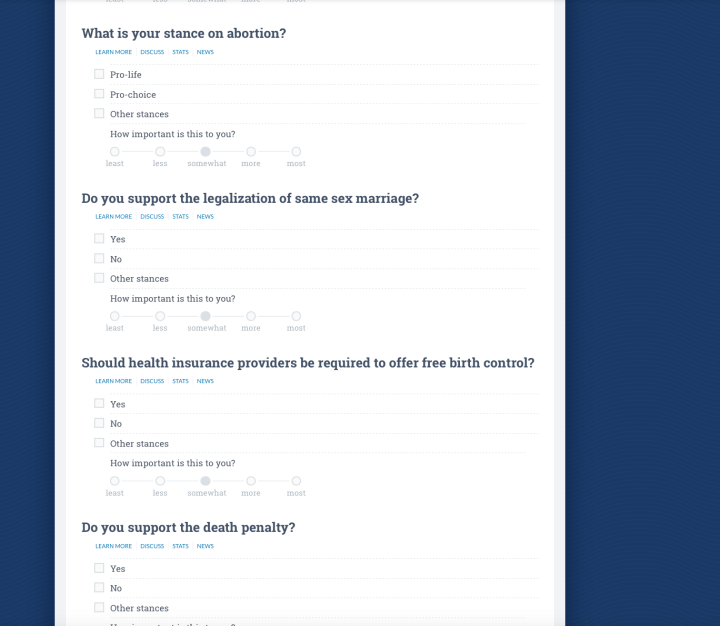According to surveys, nearly a fifth of voters were undecided prior to the 2016 presidential election, more than twice the amount 4 years before. As the workings of our democracy are slowly being changed by “alternative facts” and “fake news” accusations, trust is eroding in our nation’s institutions. Populism and nationalism are on the rise, consider Brexit and Donald Trump’s election. But our societies are changing in another way too. Though it’s hard to believe, a little more than 10 years ago, there were no iPhones or smartphones. There was no YouTube or Twitter. Today, we are more connected than we have ever been. The minute something happens, we can know about it, even if happens on the other coast of the country. Like I wrote in a previous article, the electoral college system was designed in an era when citizens couldn’t be trusted to know the other half of the country’s problems. But now, with revelations that Russia hacked the elections, we wanted to see, how new technology is slowly changing how our democracies work.
Let’s start with the case of the undecided voter, unsure of which candidate to vote for. That might have been a problem a while ago, considering how candidates only seem to get news coverage when they say outrageous things. But what about all their views? Luckily, a new website, isidewith.org now allows voters in multiple countries to answer questions on their political views, and then produces the best match for them. Really, try it. That best match may be a third-party candidate or an independent, or even someone you’ve never heard of. Maybe it will result in us slowly moving away from the two-party system, and breaking down the partisan divide, as voters get to know new candidates who might not be all left or all right.

What did you get on the survey?
Besides this, movements and opinions can spread like wildfire on social media. There are countless online petitions on many different websites. And we almost forgot, what about online elections?
Currently allowed in about 30 states today, online voting is primarily available for voters living overseas, and in Alaska, anyone can submit a ballot from his/her computer at home. All of this is really cool, but what if it gets hacked? This is what the Department of Homeland Security is worried about. Obviously, online voting could increase turnout amongst those who don’t have the time to go to a polling station, or don’t want to take the time out of their day to go. In addition, it eliminates the concern that something would be miscounted. Results could come in live, instantly and would be very accurate.
In other countries, this technology is slowly being implemented. In Canadian cities, after online voting was implemented, turnout rose nearly 10%. In Estonia, 1/4 of ballots are cast online. If everything has moved online, why can’t elections go digital, too?
From the many technologies, it seems that citizens are getting more involved in politics. Petitions are forming. Protests are being organized. Horrific incidents between police and citizens are being live-streamed. It’s all connected. But it remains to be seen whether all this new involvement will make our democracy healthier, or just divide us more and give rise to hateful comments and make debates get uglier.
